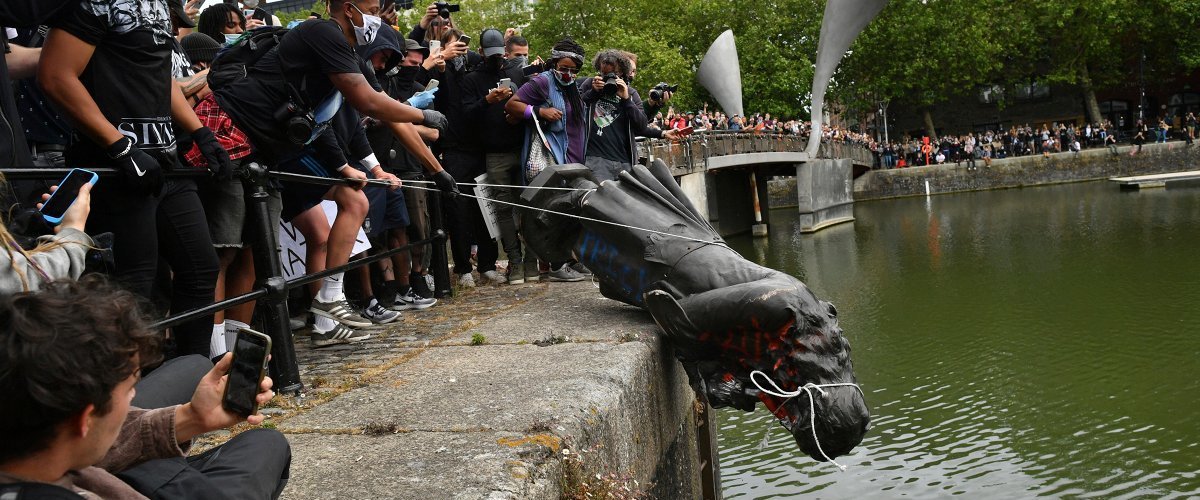

The Stories We Tell in the 21st Century
The Russian poet Velimir Khlebnikov wrote: "Statues are the language the state uses to speak to its people." Well, some of the people have used these to speak back.
Referring to the dumping of the statue of the slave trader Edward Colston, one Bristolian said, "We’ve been trying to get rid of him for years through the proper channels, and now he’s in the proper channel." Debate is central to Div and the rights and wrongs of this action has provided excellent grist to the mill. More broadly, our pupils have recognised that after the George Floyd killing, the issue of black and other ethnic minority rights have come to the fore and they are eager to know more about what the historian David Olusoga has described as a ‘Forgotten History.’
The curriculum, it can be argued, is the language a school uses to speak to its pupils, and this at Winchester, has changed. Before discussing this change further, it needs stressing that Div has always been a vehicle for discussing issues such as black history, that Div was never a monolithic, wholly logocentric, entity. The same can be said for the English curriculum, where colleagues supplemented what was often a relatively canonical diet prescribed by the exam board with much broader fare. However, now both English and Div are more co-ordinated in making sure this provision is accessible to all boys.
For me, this has meant that for Year 10 English my chosen novel is Andrea Levy’s Small Island. It is important that studying such a novel is not tokenistic; this is an excellent novel in its own right with memorable characterisation, vivid description and innovative approaches to narrative perspective and time. In addition, it has already provided many discussions on topics such as how British attitudes to race have changed over time, how England was / is seen abroad, and the language of racial insult that characters use. It is a novel that bears witness and enables us to have greater understanding and greater empathy with others.
In Div, we have been discussing the removal of statues, the nature of the BLM movement, the history of slavery through Olusoga’s excellent Black and British: A Forgotten History. We have also looked at parts of Small Island as well as Black British poets such as the TS Eliot prize winner, Roger Robinson. It is important in this work not to be overly didactic: I do want to explore important truths about slavery and racism, but I am not seeking to provoke collective guilt or shame. That risks invoking a defensive reaction anyway. What matters is the openness of debates, the intellectual curiosity they foster and, I hope, a much greater willingness to recognise how the past informs the present and our collective futures.

 Head back to stories
Head back to stories